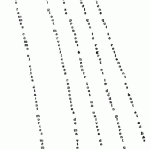On “The Haunted House”
Keith Herber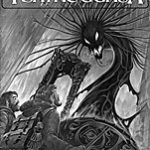
Keith Herber discusses how in his "Haunted House" scenario for Call of Cthulhu, characters are driven insane by their attempt to unravel the game's mysteries. Herber's explanation distinguishes his work from many other role-playing games in which the goal is to develop characters and acquire power and/or wealth. In contrast, characters in Herber's scenario are rewarded with mental instability.
Limiting the Creative Agenda: Restrictive Assumptions In Chaosium’s Call of Cthulhu
David AlgerDavid Alger responds to Herber by disagreeing with the latter's claim that narrative trumps game-play in the Cthulhu "Haunted House" scenario, stressing that even the most narratively driven games still must be playable in order to be games.
On Character Creation in Everway
Jonathan Tweet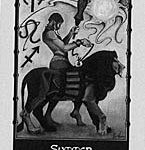
Jonathan Tweet explains how, unlike highly narratively structured games such as The Call of Cthulhu, the free-form, character-focused Everway includes a matrix that allows for the creation of coherent characters and productively constrains the otherwise open-ended game-play.
What Was Postmodernism?
Brian McHale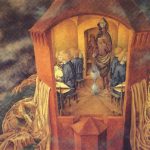
Brian McHale looks back on the movement in "What Was Postmodernism?" He contrasts postmodernism's canonization with critical constructions of modernism, and moves through contemporary painting to reflect on intersections between the violence of recent history and postmodernism, as the postwar world lived "in the ruins of our own civilization, if only in our imaginations."
A Critical Notice on a Book on Primates and Philosophers
Paola CavalieriPaola Cavalieri challenges the book's notion that human superior ethical worth can be preserved.
Introduction: ceci n’est pas un texte
Lori EmersonLori Emerson introduces a gathering of nineteen electro-poetic essays. This gathering brings together both
critics and creators of electronic poetry; as is usually the case in ebr, the 'electronic' does not exclude, but helps us to reconfigure and revalue poetic works in print as well as define what works in digital
environments.
My Life with Master: The Architecture of Protagonism
Paul Czege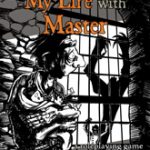
Paul Czege explains that he aimed for My Life with Master to be an engine for story creation rather than just another variation on the traditional role-playing game system.
Perloff on Pedagogical Process: Reading as Learning
Douglas BarbourDouglas Barbour reads Marjorie Perloff's Differentials: Poetry, Poetics, Pedagogy as a notable addition to her oeuvre, another grab-bag of pertinent, impertinent, and always provocative readings of both a wide range of works and some of the social/cultural contexts in which we read them.
Literature from Page to Interface: The Treatments of Text in Christophe Bruno’s Iterature
Søren Bro Pold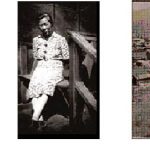
Søren Pold explores the ways in which Christophe Bruno's Iterature expands the notion of literary form and shows what happens when words are no longer only part of a language.
